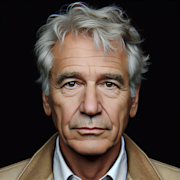Dr. Strangelove or: How I Learned to Stop Worrying and Love the Bomb (1964)

In 1964, legendary filmmaker Stanley Kubrick released what many consider to be one of his greatest works - ‘Dr. Strangelove or: How I Learned to Stop Worrying and Love the Bomb’. This satirical black comedy takes a darkly humorous look at the Cold War and the threat of nuclear annihilation. With its unforgettable characters, sharp dialogue, and iconic images, ‘Dr. Strangelove’ remains a classic of cinema that continues to resonate with audiences today.
The Story
The film is set during the height of the Cold War, as tensions between the United States and the Soviet Union are at their peak. When a rogue Air Force general orders a nuclear strike on the Soviet Union without authorization, chaos ensues as the President, his advisors, and military officials scramble to prevent an all-out nuclear war. As the situation spirals out of control, the film explores the absurdity and futility of war.
The Characters
One of the film’s most memorable aspects is its cast of eccentric characters, each played to perfection by the talented ensemble. From the paranoid General Ripper (played by Sterling Hayden) who sets the events in motion, to the bumbling President Merkin Muffley (played by Peter Sellers in one of his three roles in the film), to the sinister Dr. Strangelove himself (also played by Sellers), each character brings a unique perspective to the unfolding crisis.
The Themes
At its core, ‘Dr. Strangelove’ is a scathing critique of the nuclear arms race and the doctrine of mutually assured destruction that dominated Cold War politics. Through its dark humor and biting satire, the film exposes the absurdity of nuclear war and the dangers of unchecked militarism. Kubrick uses the characters and dialogue to highlight the absurdity of war and the ways in which the systems put in place to prevent it may actually hasten its occurrence.
The Legacy
Despite being released over 50 years ago, ‘Dr. Strangelove’ remains as relevant and impactful as ever. Its themes of nuclear proliferation, political brinksmanship, and the consequences of unchecked aggression still resonate in today’s world. The film’s sharp wit and incisive commentary have earned it a place among the greatest works of cinema, and its influence can be seen in countless films and TV shows that have followed.
Conclusion
In conclusion, ‘Dr. Strangelove or: How I Learned to Stop Worrying and Love the Bomb’ is a timeless masterpiece that continues to captivate and provoke audiences. With its dark humor, sharp satire, and unforgettable performances, the film remains a powerful reminder of the dangers of nuclear war and the absurdities of geopolitics. Whether you’re a fan of Kubrick, black comedy, or political satire, ‘Dr. Strangelove’ is a must-watch that will leave you both laughing and thinking long after the credits roll.

Desmond van der Walt
Journalist
More From Classics Authority Movies

Movie
Romantic Resonance: Classic Films That Redefined Love on Screen

Movie
A Journey into Film Noir: The Dark Side of Classic Cinema

Movie
Rediscovering Classic Italian Neorealism: Authentic Stories on Film

Movie
The Big Lebowski (1998)

Movie
The Allure of Classic Movie Locations: Exploring Famous Filming Spots

Movie
The Philadelphia Story (1940)





